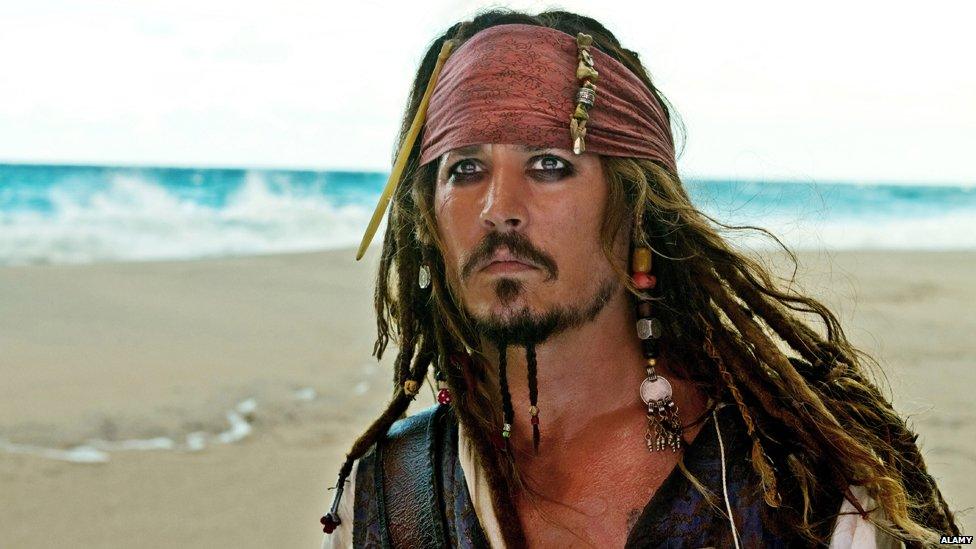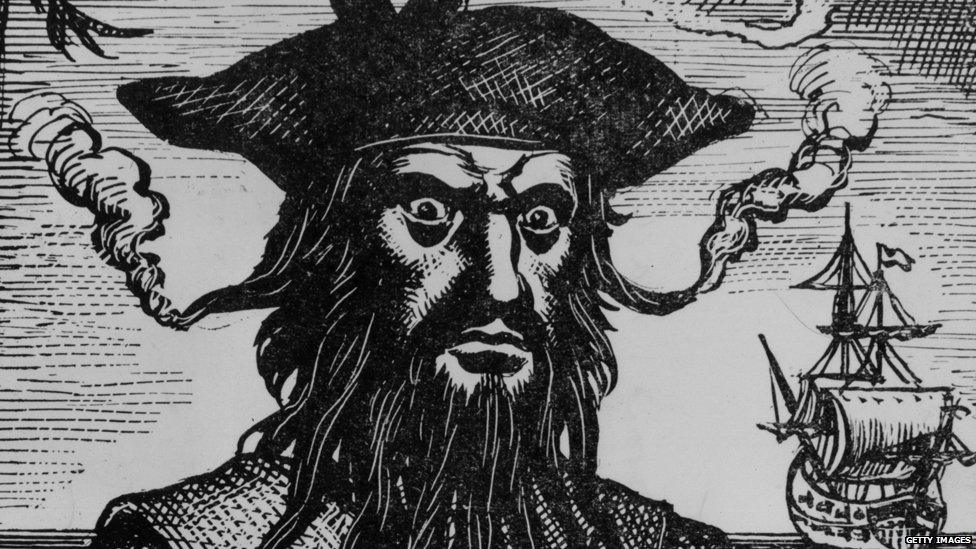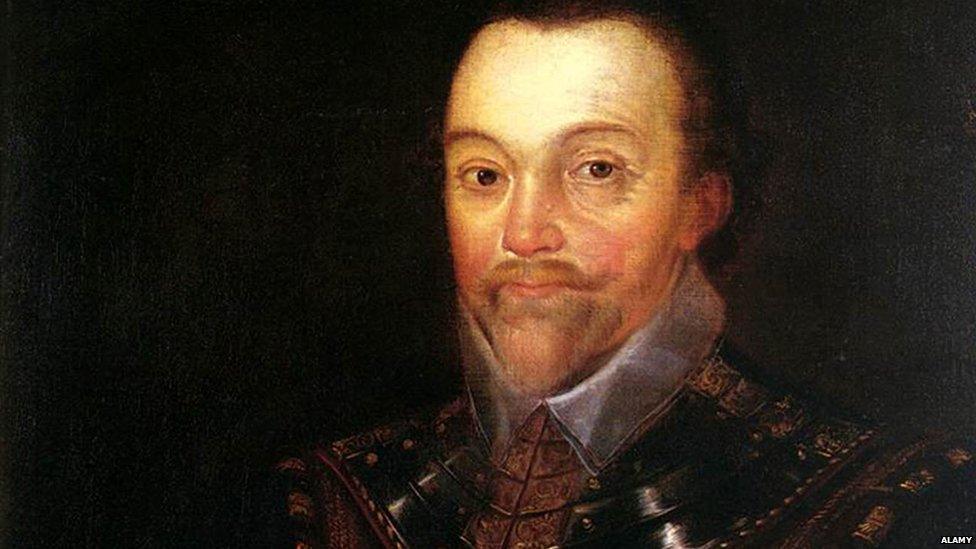When did 'buccaneering' become a good word?
- Published

UK Prime Minister David Cameron wants Britain to be a "buccaneering, trading, investing nation right around the world". But despite the word's roots, he doesn't mean the UK is a nation of thieves and murderers, writes Trevor Timpson.
Buccaneers were the classic Caribbean pirates.
They were horribly violent, ruthless robbers. Edward Teach, known as Blackbeard, went into battle with pieces of burning slow match, external stuck in his filthy, matted beard and hair.
To some the word still means someone who greedily grabs what they want by force. "Buccaneer capitalism" was blamed by some for the financial crisis of 2008.
In the 1970s and 1980s aggressive corporate takeover specialists, like Lord Hanson and Lord White, both admired by Margaret Thatcher, were called "boardroom buccaneers".
But it turned out that Hanson and White rather liked the term, external - perhaps it made them feel more like Errol Flynn with his daring swordplay and his shy smile, than the matted, smoking Blackbeard.
Now we even hear that poets, external and headteachers, external should be buccaneers. And evening wear is recommended, external "for any girl who fancies herself a bit of a boardroom buccaneer".

Blackbeard: A role model?
A long time ago, stories told of buccaneers' courage and enterprise ("peirates" in Greek comes from peirao, "endeavour") and liking for daring exploits.
"Boucaniers" - a French word dating from the 17th Century - were groups of runaway sailors who lived in the forest of Hispaniola (Haiti) smoking meat on a boucan - a Brazilian word meaning a kind of wooden barbecue.
The distinction between them and the pirates they traded with was lost when the Spanish evicted both groups from Hispaniola, and they founded a stronghold on nearby Tortuga island.
The word became common in English after the 1680s when a Dutch book by Alexander Exquemelin was published in English as "History of the Bucaniers of America".
In a preface, external the translator recommends the book "unto the perusal of our English nation, whose glorious actions it containeth" and praises "the valour of our famous Bucaniers".
They were "glorious" when they were fighting Spain - but to the Spaniards, English maritime heroes such as Drake, external are often remembered as mere pirates.

Sir Francis Drake: A seafaring hero to the British, a pirate to the Spanish
Then as now, one man's plunderer was another's romantic daring adventurer, as the squire said about Captain Flint in Treasure Island:
"He was the bloodthirstiest buccaneer that sailed. Blackbeard was a child to Flint.
"The Spaniards were so prodigiously afraid of him that, I tell you, sir, I was sometimes proud he was an Englishman."

The Vocabularist

Subscribe to the BBC News Magazine's email newsletter, external to get articles sent to your inbox.